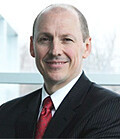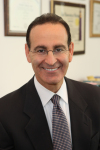
In many cancer therapies, treatment is highly toxic, and even when they appear to work, a significant percentage of patients will experience a relapse after only a few months. Typically, these relapses result from small subpopulations of mutated cells which are resistant to therapy, and doctors who try to address this problem with combinations of approved cancer therapies find that therapeutic toxicity typically limits their ability to stop most cancers.
Beginning in 2013, hundreds of cancer researchers and physicians from around the globe collaborated on an initiative called the Halifax Project. One task force within that project focused on the design of a novel approach to cancer therapy and prevention to solve this problem. Specifically, their focus was on the rationale needed to support the development of an advanced therapeutic design aimed at a broad-spectrum of targets to tackle the problem of therapeutic resistance and disease relapse.
 A task force of 180 scientists from prominent institutions in 22 countries was assembled by a Canadian NGO called “Getting to Know Cancer”. Interdisciplinary teams nominated a series of high-priority molecular targets (74 in total) that could be reached to improve patient outcomes in most cancers. Corresponding low-toxicity approaches were then recommended as potential candidates for mixtures of chemical substances that could reach a broad-spectrum of priority targets in most cancer types. Many of the substances that were selected were from plants and foods, substances that are often overlooked by the pharmaceutical industry.
A task force of 180 scientists from prominent institutions in 22 countries was assembled by a Canadian NGO called “Getting to Know Cancer”. Interdisciplinary teams nominated a series of high-priority molecular targets (74 in total) that could be reached to improve patient outcomes in most cancers. Corresponding low-toxicity approaches were then recommended as potential candidates for mixtures of chemical substances that could reach a broad-spectrum of priority targets in most cancer types. Many of the substances that were selected were from plants and foods, substances that are often overlooked by the pharmaceutical industry.
This task force ultimately produced a consensus document (Block et al in resources page) to support carefully designed combinations of non-toxic chemicals as complementary integrative support for traditional cancer treatments to maximize our chance of arresting most cancers. Currently, clinicians have a limited number of tools to help them treat the disease once it becomes resistant to mainstream therapy, but an approach that can reach a broad-spectrum of targets without toxicity offers considerable promise. This approach also has the potential to be low cost making it accessible for low and middle income countries where current cancer therapies are unaffordable. In light of this evidence, the task force is calling for an immediate increase in support for research on mixtures of chemicals that can reach a broad-spectrum of therapeutic targets. Their research recommendations call for interdisciplinary and international collaboration.
On this call Dr. Keith Block, Founder and Medical-Scientific Director of the Block Center for Integrative Cancer Treatment, discussed an overview of the Halifax project. Then, the Co-founder and President of Getting to Know Cancer, Dr. Leroy Lowe, discussed designing a broad-spectrum integrative approach for therapeutics and cancer prevention.
Featured Speakers
 Leroy Lowe, PhD, is the president and cofounder of Getting to Know Cancer. Leroy Lowe is a former aerospace engineer and an autodidact who studied cancer science intensively for eight years before launching Getting to Know Cancer, an independent, all-volunteer, public-interest NGO in 2011. He and Dr. Michael Gilbertson (the other co-founder of his organization) recruited a large advisory board of cancer researchers from prominent scientific research institutions around the globe and spearheaded "The Halifax Project", a project involving more than 350 scientists from 31 countries. The researchers were organized into two separate task forces, each comprised of 12 cross-functional teams, and the work from that project was published last year in two special issues of the peer-reviewed journals “Carcinogenesis” and “Seminars in Cancer Biology”.
Leroy Lowe, PhD, is the president and cofounder of Getting to Know Cancer. Leroy Lowe is a former aerospace engineer and an autodidact who studied cancer science intensively for eight years before launching Getting to Know Cancer, an independent, all-volunteer, public-interest NGO in 2011. He and Dr. Michael Gilbertson (the other co-founder of his organization) recruited a large advisory board of cancer researchers from prominent scientific research institutions around the globe and spearheaded "The Halifax Project", a project involving more than 350 scientists from 31 countries. The researchers were organized into two separate task forces, each comprised of 12 cross-functional teams, and the work from that project was published last year in two special issues of the peer-reviewed journals “Carcinogenesis” and “Seminars in Cancer Biology”.
 Keith I. Block, MD, is the medical director of the Block Center for Integrative Cancer Treatment, a clinic and research facility in Skokie IL that has been developing integrative medicine treatment regimens for patients with cancer for over 35 years. Dr Block’s treatment programs include tailored diets, therapeutic exercise, personalized biobehavioral programs and prescriptive supplement protocols, all designed to match to each patient’s comprehensive integrative assessment, their mainstream treatments and metabolic and molecular laboratory results.
Keith I. Block, MD, is the medical director of the Block Center for Integrative Cancer Treatment, a clinic and research facility in Skokie IL that has been developing integrative medicine treatment regimens for patients with cancer for over 35 years. Dr Block’s treatment programs include tailored diets, therapeutic exercise, personalized biobehavioral programs and prescriptive supplement protocols, all designed to match to each patient’s comprehensive integrative assessment, their mainstream treatments and metabolic and molecular laboratory results.
All patient regimens are coordinated with conventional medical treatments and administered in the Center’s outpatient chemotherapy clinic. The Center also provides comprehensive molecular profiling and integrative assessments, as well as providing chronomodulated chemotherapy that helps diminish side effects and improves drug efficacy. The basis of his lifestyle recommendations is outlined in his book, Life Over Cancer, which provides a comprehensive summary of his integrative approach.
In addition to his clinical expertise in lifestyle medicine, Dr Block is grounded in the academic and research worlds. He is the Editor-in-Chief of Integrative Cancer Therapies, an open access, peer-reviewed journal published by SAGE Publications now in its 15th year of publication. The journal emphasizes lifestyle medicine and other integrative therapies for cancer.
Dr Block’s areas of research and publication include broad-spectrum approaches to cancer treatment. He was a Guest Editor of the Halifax Project special issue of Seminars in Cancer Biology and lead author of the issue’s capstone paper. His research program includes studies of circadian rhythms and chronotherapy in cancer, interactions of dietary supplements used by cancer patients, improved outcomes of integrative treatment among advanced breast cancer patients, and systematic reviews of the effects of antioxidants on chemotherapy treatment.
In other professional roles, Dr Block is an Adjunct Assistant Professor in the College of Pharmacy, University of Illinois at Chicago, where he has lectured to medical and pharmacy students; the Center hosts pharmacy student clinical interns. Dr Block is a member of both the American Society for Clinical Oncology and American Association for Cancer Research and has been active in the Society for Integrative Oncology, has served on its Board of Directors and in 2011 served as the Chair of the Annual Meeting. Dr Block is also a member of the Physician Data Query (PDQ) Cancer Complementary and Alternative Medicine (CAM) Editorial Board of the National Cancer Institute, Bethesda, Maryland.
This call was hosted by the CHE Cancer ScienceServ. To join this ScienceServ, please email checancer-subscribe@lists.healthandenvironment.org. This call was moderated by Michael Lerner, Commonweal’s President, lasted 90 minutes and was recorded for our call archive.
